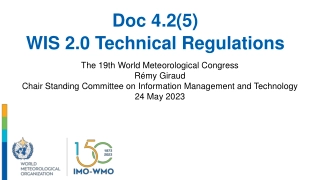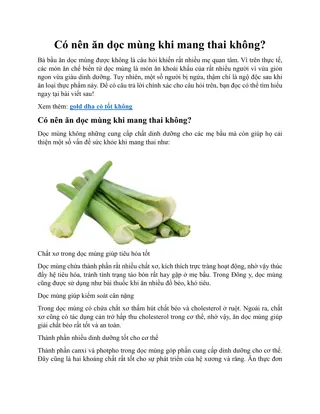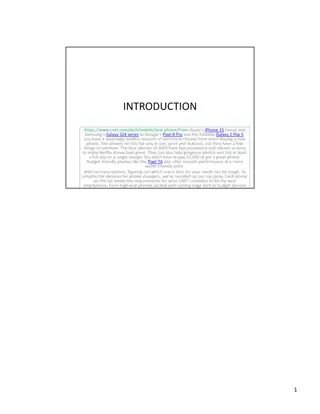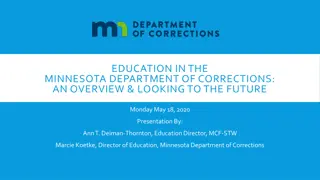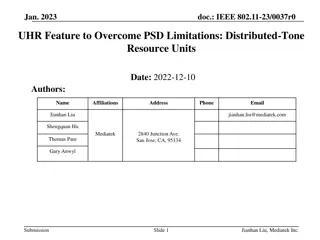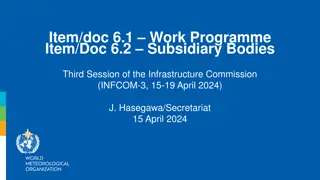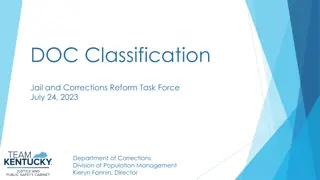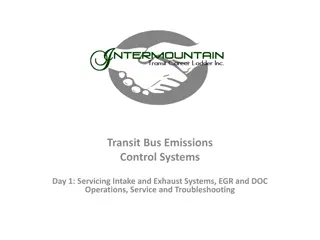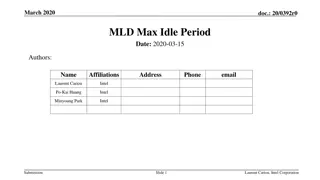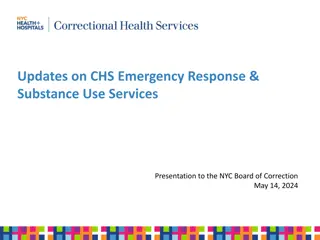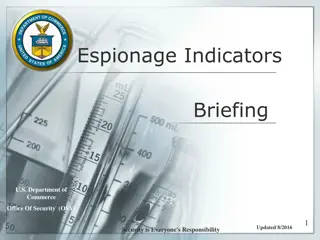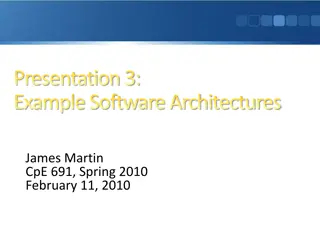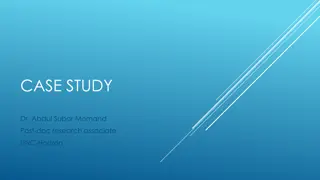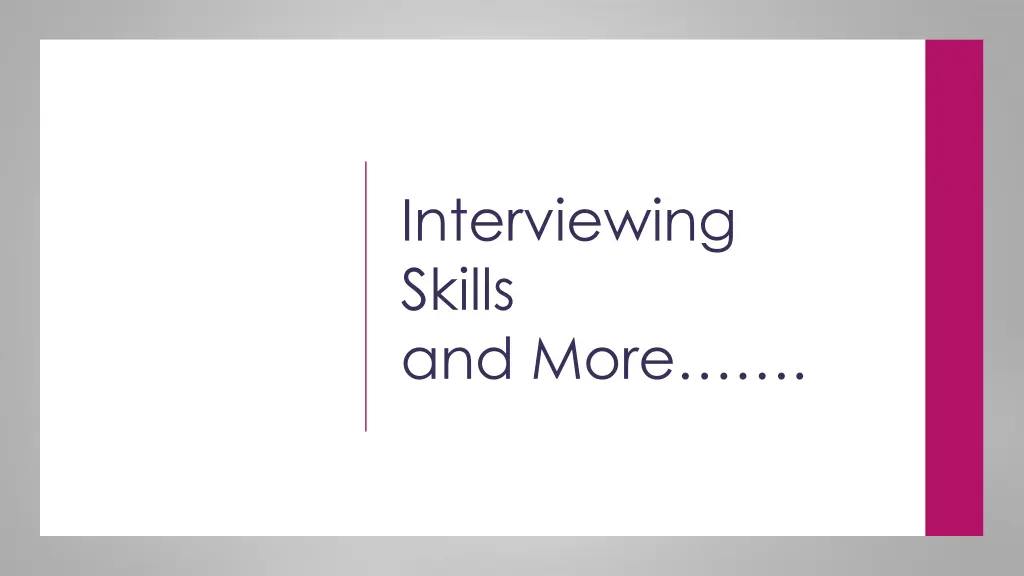
Advanced Interviewing Strategies and Techniques
Enhance your interviewing skills with expert tips on answering tough questions, understanding the interviewer's perspective, negotiating offers, and more. Learn how to present your achievements effectively and avoid common interview faux pas. Increase your chances of landing your dream job by being well-prepared and showcasing your competencies.
Download Presentation

Please find below an Image/Link to download the presentation.
The content on the website is provided AS IS for your information and personal use only. It may not be sold, licensed, or shared on other websites without obtaining consent from the author. If you encounter any issues during the download, it is possible that the publisher has removed the file from their server.
You are allowed to download the files provided on this website for personal or commercial use, subject to the condition that they are used lawfully. All files are the property of their respective owners.
The content on the website is provided AS IS for your information and personal use only. It may not be sold, licensed, or shared on other websites without obtaining consent from the author.
E N D
Presentation Transcript
Interviewing Skills and More .
What you do not want to do!! "Stretched out on the floor to fill out the application" "When I asked him about his hobbies, he stood up and started tap dancing around my office" "A balding candidate abruptly excused himself. He returned to the office a few minutes later, wearing a hairpiece" "Announced she hadn't had lunch and proceeded to eat a hamburger and French fries in the interviewer's office wiping the ketchup on her sleeve" "Asked to see the interviewer's resume to see if the HR Manager was qualified to judge the candidate
Interviewing Basics and what not to do! Interview Questions How to answer tough questions The Inside Scoop-What is the Interviewer is really thinking . We will review: Negotiating the offer Thank-you letter Life Skills How to Annoy the Interviewer
Watch your social media comments Hide the Tattoos, piercings Do your HW- read Company s website!!!!!! Interviewing Basics Know thyself-achievement stories Practice, practice again, and then again! Be prepared with Questions Don t be a Chatty Cathy!
Interviewing Basics Continued On- average it takes 5-6 interviews to receive a job offer The most common misunderstanding of job interviews is that the role of the person being interviewed is a passive one and is just there to answer the interviewer s questions. In fact, this is incorrect. The more successful candidate are usually active and more prepared than the interviewer! Your main job is to get your core message (strengths, accomplishments, skills, personality attributes etc.) across to the hiring manager even if they are a terrible interviewer. A prepared candidate would have at least 5-8 accomplishment stories demonstrating at least 30+ skills to accurately display their competencies It it imperative to give lots of examples of your skills, personal attributes, knowledge etc. to stand out from the crowd.
The Bottom Line Be prepared with examples- PAR, TBAR, Know what you want to know Know what to ask
Accomplishment Stories are a powerful technique!! What are they?? They are 10-20+ personal & professional accomplishments that you did well and enjoyed can be anything Why use them?? Because they provide a vehicle to help you understand your skills and can give concrete evidence of your competencies How to do them?? Write your story and analyze each story to review what skills were used to achieve your accomplishment such as I write well, I work well under pressure, good at analyzing, I m a quick learner, and good with numbers etc. Result of stories -- Pattern of skills will emerge use for self-knowledge, skill assessment, job search, resume bullet, and interviewing Accomplishment story will answer interview ? s (behavioral & standard) One story can result in several skills
Accomplishment Story example Accomplishment story- I was in charge of a group project for a class Skills used Took a leadership role in handing out assignments, persuasive to members of the group, did well conducting a difficult conversation, led a successful project to its conclusion, was a good listener, performed thorough research, How it works: Interview Question: Tell me about a time you had to take on a leadership role? - Answer with your group project accomplishment story But this same story also answers other questions like What are your strengths? or Give me an example of your research skills , or Have you ever had to have a difficult conversation with someone?
Skills/Abilities 1 2 3 4 5 6 7 8 9 10 Total Score College Group Project EAGLE Scout Project Rock Climbing Created fundraiser for charity Created & delivered Perf Review training X Research X X X 4 Had to have a Difficult Conversation X X 2 Thinking out of the Box X X X 3 Writing X X X X X 3 Leadership X X 3 Selling Ideas X X 3 Organized & delegated to team work responsibilities Perseverance X X X 3 X X 2 Athletic Ability X 1 X Work Well Under Pressure X 3 X Powerpoint skills 1 X
The marriage of accomplishment stories and PAR Easy method for responding to interview questions and providing examples of your skills!! Use your accomplishment stories to learn your skill set AND Use your accomplishment stories to answer interview questions using PAR or SOAR PAR= Problem, action, result or SOAR = Situation, Obstacle, Action, Result. Using this acronym allows you to give concrete examples of your competencies this is a critical piece of interviewing to make you stand out! How it works Question--Tell me about a project you had to complete? Your accomplishment story becomes your answer using PAR! Problem I was chosen by my club to create a fundraiser for the ADA. I had never done a large-scale fundraiser before and felt overwhelmed at the prospect. Action However, I realized it would be just like completing a group school project and I handled it in much the same way. I researched what types of fundraisers made the most money and chose one, convinced my school to make a matching gift donation, delegated a job to each member of my club to create advertising, ask stores for food donations & raffle prizes, decorate the space, get ideas & materials for raffle games etc. Result: In a few weeks, my group and I came up with a fundraising idea, obtained donations from various vendors and my school, we advertised, held the event, and raised $5000 for the ADA!
Problem: How to handle a project - had to be in charge of a fundraiser, never did this before realized like a school project and handled it as such Action: Skills used taken from your accomplishment story leadership, research, selling ideas, delegation, teamwork, organized team members, sold idea, wrote advertising ads, spoke to school officials etc. Result: Raised $5000 What the interview will hear is not only did you answer his/her question, but they will also hear what and how you did the project and the specific skills used organized, led a group, researched, persevered, delegated, wrote, persuasive. The specifics and examples are what will make you stand out from other candidates.
Preparation Key to Keeping Control Your accomplishment stories will help you prepare and put you at ease and give a feeling of control Preparation will take much of the stress out of the interview Prepare what you can do, what you like to do, and what contributions you can make Learn as much about the role and company as possible then match your strengths and skills to the employer's needs Review and practice, practice, practice your accomplishment stories and answers to possible questions
Tough Questions Tell me about yourself?-Use PEES acronym P= Profession, E=Expertise, E-Environment, S=Special Skills I am a HR professional with an expertise in employee relations. I have worked in financial services and the real estate industries. My special skills are in coaching, training, and talent development What are my weaknesses?- Do not say : You are a hard worker or a perfectionist!! Be truthful and state a weakness you are working hard on to improve Salary - have a range in mind and be reasonable Salary negotiations put off if possible. Be open to other incentives besides base such as : Sign on bonus, three-month review, guaranteed bonus, hybrid etc. If you were a book Be prepared to speak about gaps in employment
Interview Questions: Why should we hire you? Why are you leaving your current position? What do you consider your greatest accomplishment, strength, weakness? What would you supervisor say about you? In your last position, what would you do differently? What was your worst mistake? What skills don't you want to use in your next job? What are the reasons for gaps in your employment?
Questions continued What aspects of your current job relate to this position? How would you describe your work style? Why are you interested in working for this company? What kind of culture do your feel you perform the best in? What kind of salary are you looking for? How do you manage priorities? Tell me why you feel you would succeed in this role? Where do you see yourself in five years? Describe a time when you did not successfully manage a conflict at work
Sensitive Questions Questions that may be sensitive perhaps even illegal such as: Age, marital status, number of children, nationality, political views, disabilities, arrest record Despite the insensitivity or illegalness of the question, it has to be answered in some way and there may be a reason why the question is being asked. Try to determine what the purpose of the question is by asking: Is there a reason why this area is applicable to the position? How does this relate to the job responsibilities of the role? Can you elaborate?
How to deal with the salary question What salary are you seeking? Or our salary range for this position is $XX is that in line with your expectations? 1. Try to defer the question- Salary is important but right now I actually would like to hear more about the position Or We may be in a similar ballpark, but could you tell me first more about the role? or I am flexible . If the interviewer inquires again, go to step 2: 2. Ask What is the salary range usually for this type of position? 3. As a last alternative, give a salary range you are comfortable with- Based on your description of the roles and the responsibilities, I would be comfortable with a salary range of $XX to $XX. But make sure you will be satisfied with the low end of your range because that is where the offer may come in!!
Inside Scoop! You . 3 C s-Competent, compensation, culture Interviewer . 5 C s-Competent, compensation, culture, compatible, (C)SinCere
Them: Competence-Can you do the job? Compatibility Can you do the job at this company? YOU: COMPETENCE CAN I DO THIS JOB? Chemistry Can you do this job with me? COMPATIBILITY CAN I DO THIS JOB IN THIS COMPANY? Compensation Can you do this job at this salary? COMPENSATION IS THE SALARY ACCEPTABLE FOR ME? Sincere Have you been truthful in everything you just told me?
Interviewing is also an opportunity to learn other skills, Life Skills! Body Language- Be Cognizant of yours - TED Talk - Amy Cuddy Perform Confidence Builders if necessary If you do get an offer-evaluate using your marketing plan and keep your ego at bay If you don t get an offer-Review the interview about what you can do better Interviewing is like a rollercoaster & dating! Keep in mind - Mistakes happen-its ok its information & you will learn best from your worst mistakes and develop resilience You may have a successful interview and still not got the job other factors could be at play Don t get discouraged!
If you dont want the Job Come Unprepared- Don t Bring your resume, pen, or reference contact info or do not fully complete application Are late or are too early Dress or speak unprofessionally Do you know anything about my Company??? Keep talking Keep talking even after I make it clear the interview is over You talk but don t really answer the question Have no questions for me or worse yet, ask What are the Benefits, salary? By all means, be conceited! Seem uninterested
After the Interview Review the interview: questions asked and how you responded, your notes on what was discussed, interview manager s names and titles, important qualifications for the position Also make note of what went well and what did not, what questions stumped you or you found difficult, what questions did you feel you answered well and why Write a thank you letter to everyone you interviewed with
Thank you Letter Thank the participants Reiterate why your experience and skills are a good fit for the role Add anything of importance you did not get a chance to add Reiterate why any objections that may have arisen during the interview are not an issue Send any information you may have promised to send Reiterate your interest in the position and follow up with a call to the hiring manager
If you get an offer! Do not be afraid to negotiate but be reasonable. Employers (and especially HR) have long memories and they will remember how you were during the interview and negotiating process and will make early and first impressions of how you are as an employee (Perception is everything!) Keep in mind that as you negotiate, the company is observing how you will be as an employee! If you cannot get the salary increase, there are other things that can be negotiated. For example, a three-month review, a sign on bonus, extra PTO time, relocation, hybrid- remote opportunities, enhanced bonus potential, guaranteed bonus, stock options, paid relocation expenses Negotiate cash first, then the rest. As you consider the offer, think all in cash, cash tangibles such as insurance premium co-pays, 401k match, and non-cash tangibles such as WFH options, more PTO etc.
Negotiating continued Also consider the job is it the job of your dreams, company, culture?? Is it an opportunity to learn more in your field, have more responsibility, or take on a managerial role, a better commute?? Do not underestimate these considerations they really do matter!! Be willing (and it is wise to do so) to lower your counteroffer! Always, always, always during the negotiating process, be enthusiastic, humble, and open while reiterating your interest in the role Negotiation is a dance, and you want to make sure you do not step on anyone s toes! It can go sour very quickly if you ask for too much, are unreasonable, inflexible, or unrealistic!!
Final Thoughts Make sure you get an offer letter with all the negotiated items spelled out Continue job searching until your first day in the new job Do not give notice to your present employer until all background checks and drug tests are completed and the new employer has informed you of such Give at least 2 weeks notice to your present employer. Complete all outstanding work or projects. You want to end on a good note and avoid burning bridges you never know what the future may bring Prepare for the new job- buy new clothes for the office, if necessary, make sure computer equipment is up and running if WFH, get a haircut etc.
Final Thoughts: You may not mesh with the interviewer and therefore you do not go forward in the process. Its ok, this may happen and is out of your control. There is a fine line between providing legitimate reasons for leaving a company -- such as a change in leadership -- and openly bad-mouthing a former manager or employer. It's not a great first impression. Its ok to not know something and say 'I'm not familiar with that,' and provide examples from your past on your continuous learning, are a quick learner, interest in learning and engaging with new concepts etc.. Better to say I don t know than to pretend to know about a subject. Honesty is the best policy. No one knows it all -- we learn most of what we need to know on the job -- so there is no shame in saying you don't know something. You Didn't Effectively Relate Your Experience to the Needs of the Current Position Simply going through your resume isn't enough to land a job -- you must explain how your previous experience qualifies you for the open position. Relate your experience, achievements and answers to the position's requirements. Make your professional narrative and qualifications are clear and most importantly, simple for the interviewer to understand how quickly you will be able to hit the ground running and fulfill the responsibilities of the position. Make sure your Salary Expectations are not too high be reasonable!!!! Even in today s market! You may have done everything perfectly and still not receive a job offer this will happen. A lot goes on behind the scenes that may have impacted the decision- just roll with the punches.
Famous Job Interview Quotes!! Julius Caesar My last job involved a lot of office politics and back- stabbing. I d like to get away from all that. Marie Antoinette My management style has been criticized, but I d like to think of myself as a people person. Joseph Guillotine I can give your company a head start on the competition. Hamlet My position was eliminated in a hostile takeover. Jesse James I can list among my skills and experience: leadership, extensive travel, intimate understanding of firearms, and a knowledge of security measures at numerous banks.

